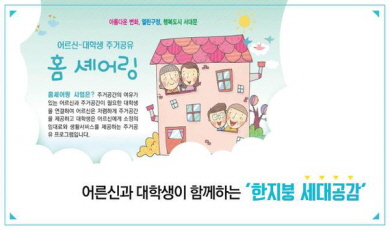
Nowadays, it is common to see students living near school campuses. Many universities including Ewha are facing difficulty providing enough dormitory rooms. Statistics from Korea Higher Education Research Institute in 2013 revealed that private universities in Korea can only accommodate 17.4 percent of their students. Therefore, living apart from family closer to campus has become inevitable these days. One of the popular alternatives to a dormitory is a lodging where students usually take up a single room in an apartment. This provides the benefit of having provided meals and higher security as the student is not left completely alone. Another common alternative is living alone in a studio. Although it requires students to take full responsibility of the house chores and security, it is an attractive option for students in that it allows them more freedom. In this issue, Ewha Voice looked into the lives of live-alone students and figure out what other options are provided by the government and other students to alleviate their housing burden.
Students who live away from home
Baik Jee-hyun, a sophomore majoring in English Literature, lives alone in a studio apartment near the Sinchon Train Station. As she is from Ulsan, it is impossible for her to attempt an approximately six-hour commute to school every day. However, as she briefly lived in Seoul when she was a high school student, her address was registered as living in Seoul at the time of application for the dormitory. As in-Seoul residents were disqualified from applying for the school dormitory up to two years ago, Baik had no choice but to search for an alternative, thus renting a small room on her own.
“It is true that renting a room has its advantages,” Baik said. “As I live by myself, I can have more freedom. There is no curfew, and I don’t have to worry about upsetting my parents by coming home too late.”
However, living alone is not always about fun and games. Like other housing options, private lodging has its shortcomings as well.
“Living alone requires much more responsibility,” Baik explained. “Chores such as cleaning and cooking are all your job. Also, it can make you lonely sometimes.”
Baik also complained of the financial burden of renting a room. The area she lives is well-known for relatively high rents, as there is a constant demand for rooms near school campuses from university students.
“I feel sorry for my parents about the high rent,” Baik revealed. “However, I didn’t want to sacrifice my safety for a cheaper price. As a girl who lives alone, I was reluctant to rent a room that was in doubtful condition in terms of security.”
Dong Soo-youn, a sophomore in the Division of International Studies who comes from Pyeongtaek, Gyeonggi Province, also pointed out the full housework responsibility as one of the most challenging consequences of living outside one’s home. However, from another perspective, as the chores can be done in her own way on her own time without any interference from her parents, she thinks that even this shortcoming has a bright side.
“What really bothers me instead is that my friends think it is okay to come over to my place without my permission,” Dong said. “Just because I live away from my parents, my friends think that they can use my room as a sort of den for eating and drinking. Although I have no objection to people coming to my room under invitation, I do not approve of them insisting that they can come over without considering my opinion.”
Despite these complaints, Dong is on the whole satisfied with her current housing style. Although her parents initially wanted her to live in the school dormitory, she has always preferred renting a room off campus. She persuaded them to let her live in a one-room unit with her sister, explaining to them the shortcomings of a dormitory life and advantages of renting a room.
“Living in a dormitory means you have to share a bathroom with a stranger as well as being tied down to a curfew,” Dong said. “With such limitations, choosing to live in a studio apartment seemed like a much better option.”
Although Dong also had another option other than a studio, she chose not to take it. When she heard about share houses run by the government, she researched them only to find that none of the share houses had the geographical advantage that she was looking for.
“I would have liked to live near my friends, but all the share houses were far away from any of my friends’ places,” Dong said.

